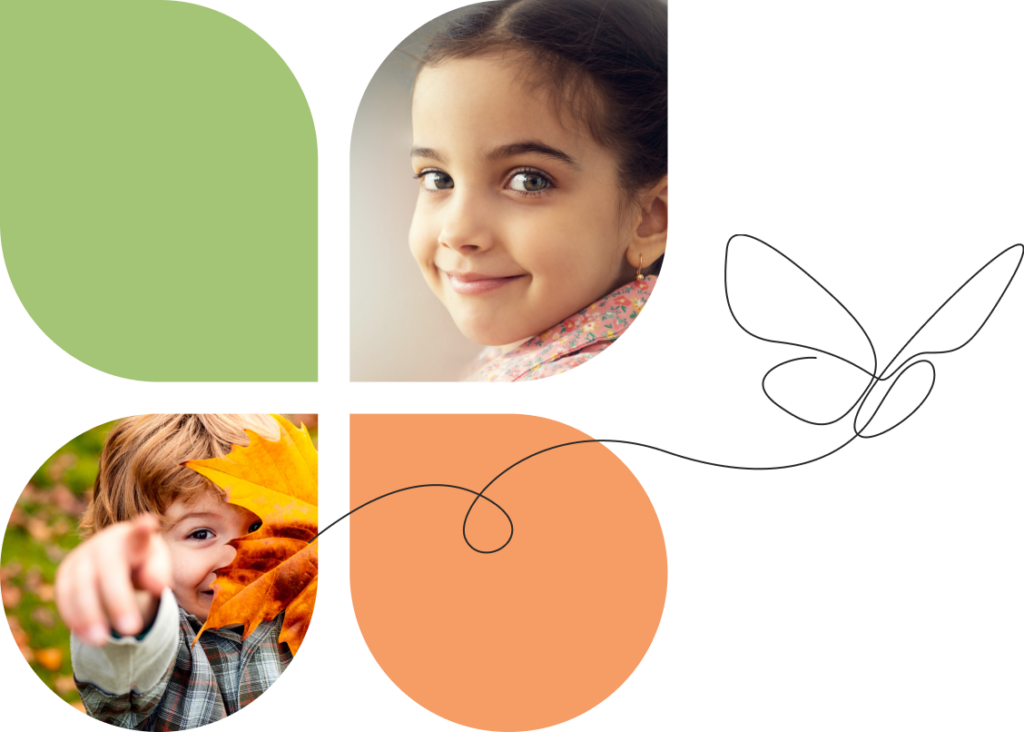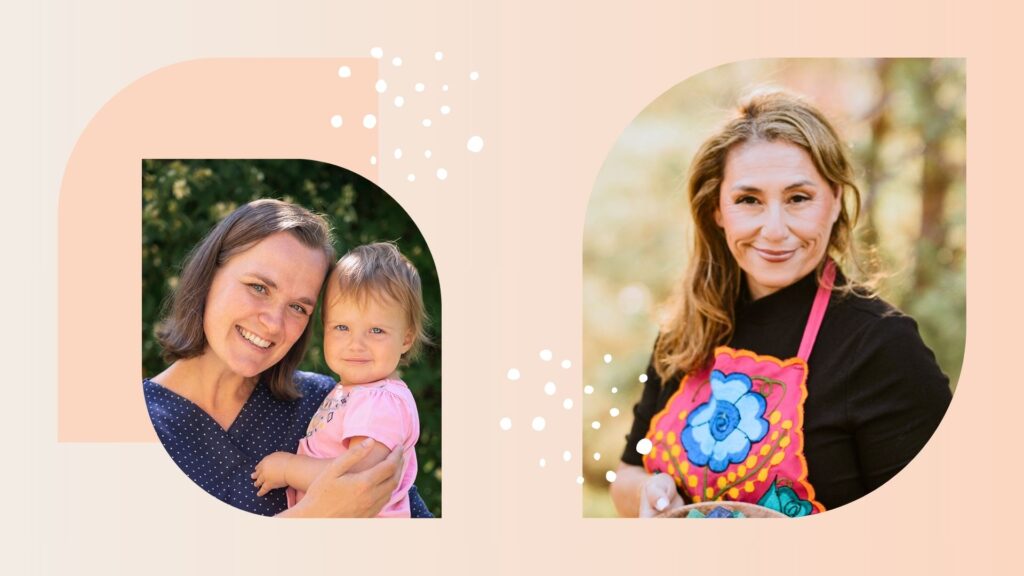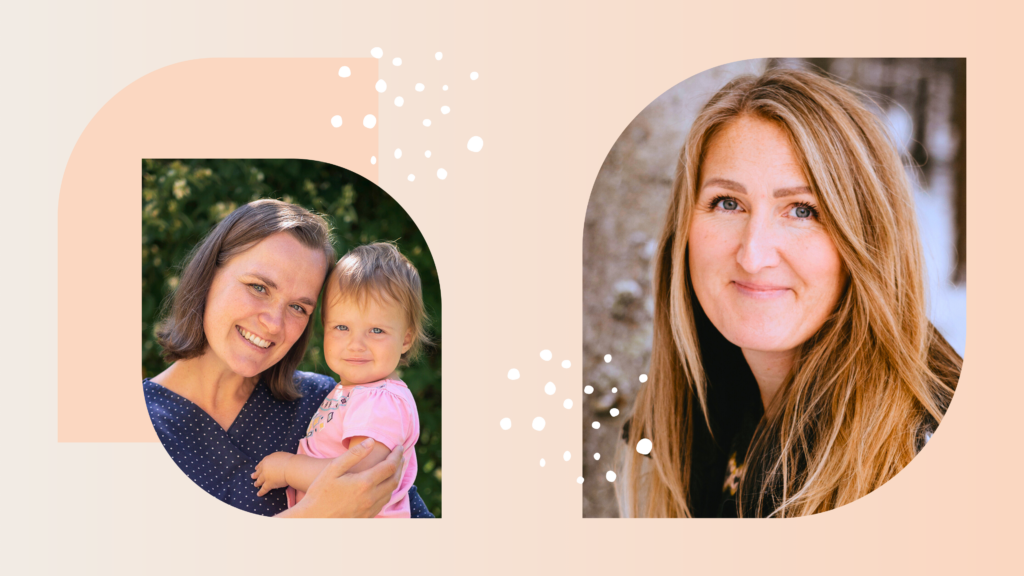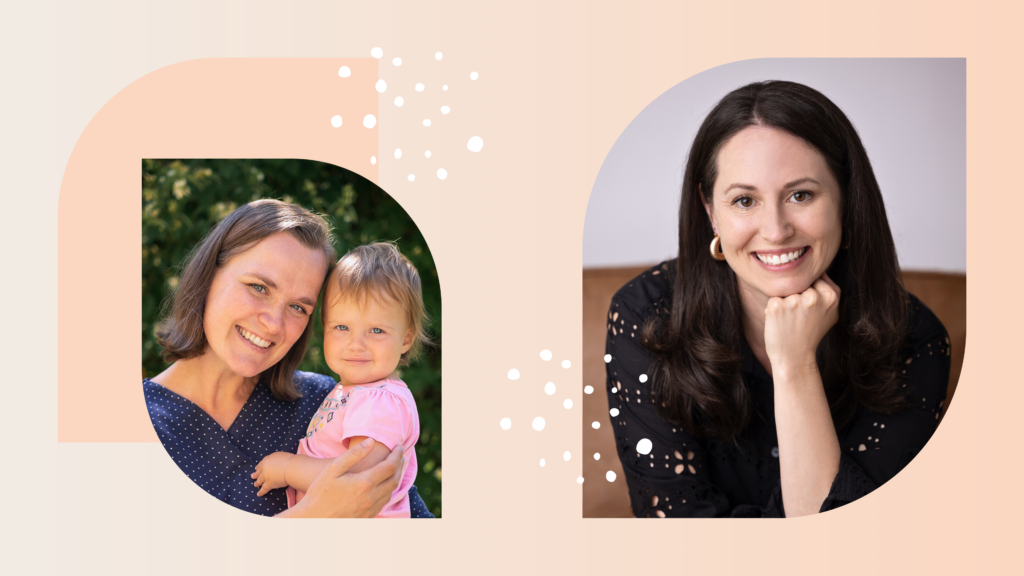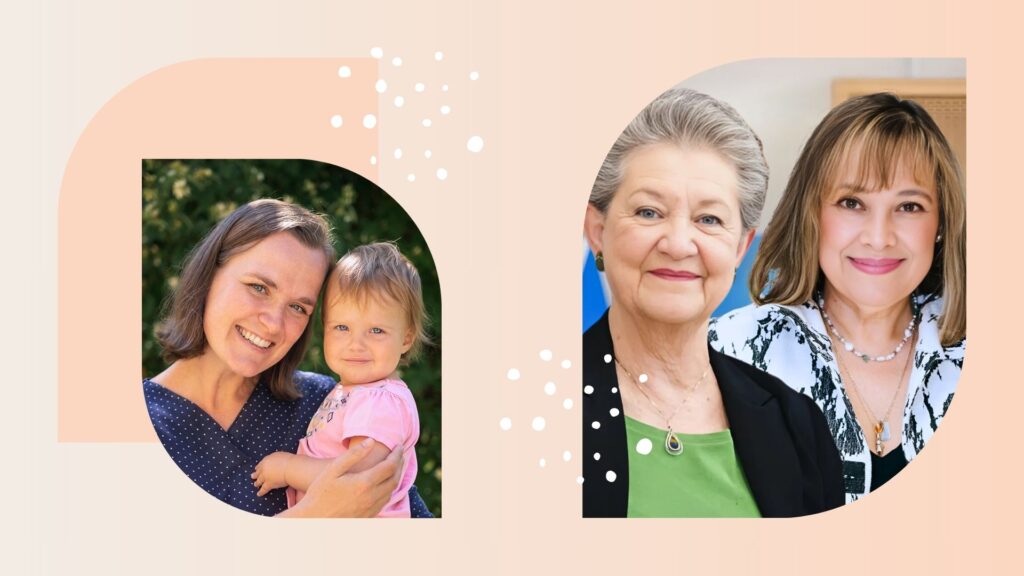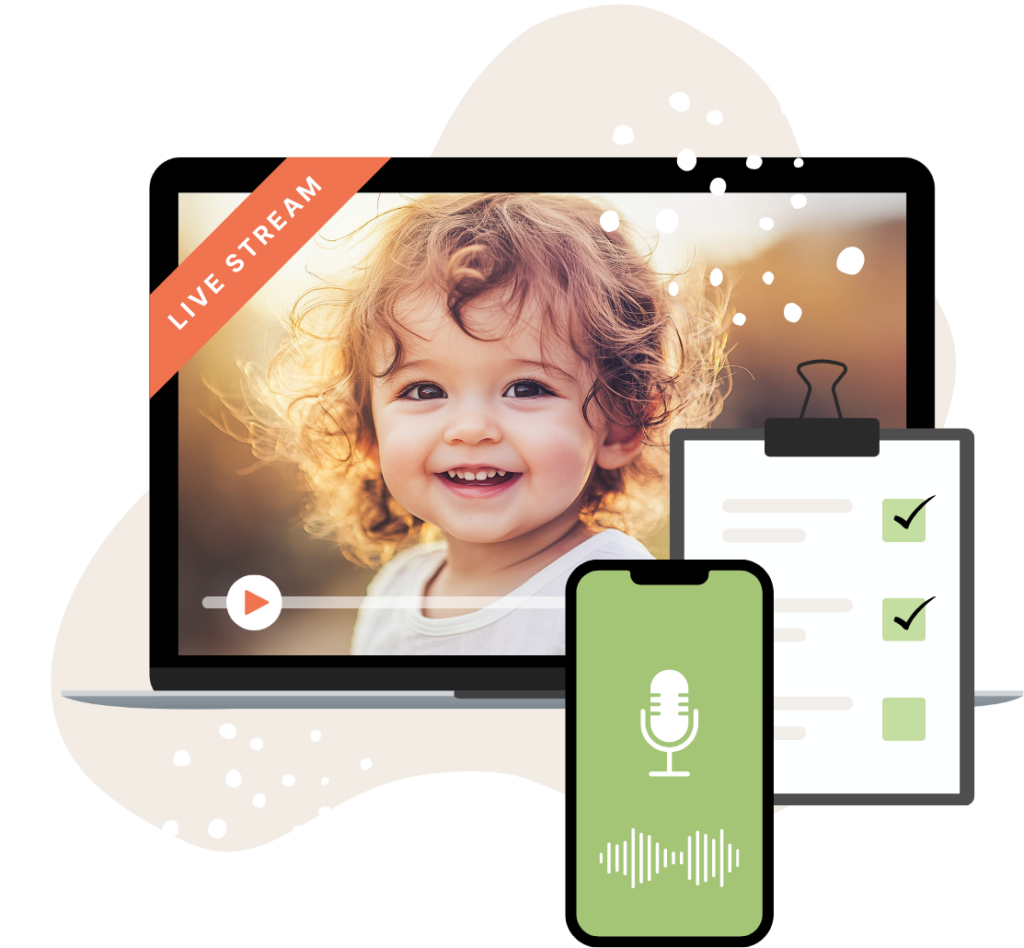If you’ve ever felt unsure about how screens fit into your child’s life, you’re not alone. It’s something so many of us wrestle with, especially when we’re trying to follow Montessori principles at home.
We want to protect childhood.
We want to create a peaceful home.
We want our children to grow up connected to the real world.
And yet… technology is everywhere.
In this thoughtful conversation, Montessori educators and parents Aubrey and David Hargis — the couple behind Child of the Redwoods — open up about what it really looks like to raise kids in a digital world, without losing sight of what matters most. This session is part of our ongoing series inside the Childhood Potential Club, where members gain access to expert talks, community support, and resources designed for real life with young children.
Finding your balance
At the heart of Montessori education is the idea that children learn best through real, hands-on experiences. They need time to move, explore, observe, and engage with the physical world, not just passively receive information.
Aubrey and David affirm this, but they also acknowledge that technology is a real part of life and pretending it doesn’t exist won’t serve our children well in the long run. Their message is simple: technology can be part of a Montessori home; it just needs to be used with care and intention. They encourage parents to see technology as one tool among many, not a replacement for real-world learning, but something that can support a child’s curiosity and development when used with intention.
They talk about the importance of preparing the environment, a core Montessori principle, in a way that includes both natural materials and carefully chosen technology. A home or classroom that offers balance and thoughtfulness sends a powerful message: “You can engage with the world in many ways, and here’s how to do that with care.”
Montessori is all about hands-on, real-world learning. But that doesn’t mean screens are always harmful. It just means we need to be thoughtful. Not everything on a screen is created equal, and not all tech use looks the same.
The anxiety around screen time is real
Aubrey and David speak directly to that guilt so many of us feel when our child asks for a show… again. Or when we’re tired and hand over the tablet just to get a moment of quiet. They remind us that instead of getting stuck in shame, we can pause and observe. What’s really going on with our child before, during, and after screen time? Are they calmer, more regulated? Or more overwhelmed and off-balance?
There’s no magic number of minutes. What matters is what the child is consuming and how it affects them. How they respond. How it fits into the rest of your life. This way of looking at screen time is gentler. And it gives you room to make decisions based on your actual child — not what an online expert or app timer tells you to do.
When tech supports curiosity
One of the most reassuring parts of this conversation is how Aubrey and David talk about tech that actually sparks curiosity, not just shuts a child down. They give examples like using a plant ID app while on a walk, or turning on music from different cultures, or letting a child record their voice to tell a story when they’re not ready to write yet.
These are all ways of saying: you’re still learning, you’re still connected, you’re still part of the real world. And for many children, these small tools can be really powerful. Not as entertainment, but as part of their development. They emphasize that technology should lead your child back into the real world, not pull them away from it. Previewing apps yourself and staying involved in how they’re used can make a big difference.
How to bring tech into your rhythm
You don’t need to overhaul everything or create a perfect plan. Aubrey and David offer ideas that feel doable — like using an audiobook during quiet time, or letting your child explore a calm app with you nearby.
They also talk about how tech can be part of a balanced daily rhythm. Not something forbidden or used only as a reward, but just one option among many. When tech isn’t framed as a “special treat,” kids are less likely to obsess over it. And when they know it has a clear place in their day, they tend to handle it better.
It’s not about strict control. It’s about steady, consistent routines that help children feel safe.
Letting children take part
One thing Montessori does so well is honoring a child’s ability to be part of their own learning. And the same can apply to screen time. Aubrey and David talk about inviting children into the conversation, asking how they feel after using a device, letting them help set a timer, giving them a voice in how tech is used.
These small moments of choice help build self-regulation. Over time, children learn to make thoughtful choices, not because they’re told to, but because they’ve been guided with respect. It’s not about handing over control. It’s about building trust.
When things get tricky
Even with the best intentions, screen time can still get hard. Some kids resist limits. Some get very attached to certain shows or games. And some days, we’re just exhausted and need the break. That’s okay.
Aubrey and David talk about how to stay steady in those moments. How to hold the boundary with love. How to model tech habits ourselves, even when it’s not perfect. The key is coming back to connection. You can say no to more screen time and still offer a hug. You can hold a limit and still let your child know you understand how hard it feels.
A different way forward
This conversation isn’t about rules. It’s not about doing everything “right.” It’s about finding your way through this with clarity, compassion, and calm. It’s about giving yourself permission to use technology with purpose and letting go of guilt when things get messy.
Aubrey and David help remind us that tech isn’t the enemy. It’s a part of the world our children are growing up in. And when we approach it intentionally, with curiosity and connection, it can become a helpful part of their lives — not something we’re constantly battling.
You don’t need to have it all figured out. You just need to keep coming back to what matters most. This talk is one of many inside the Childhood Potential Club, where we offer support that meets you where you are — tired, thoughtful, and trying your best.
Meet Aubrey and David Hargis
Aubrey and David Hargis are Montessori educators, parents, and co-founders of Child of the Redwoods, an online Montessori resource supporting families around the world. With backgrounds in teaching and a passion for conscious parenting, they guide caregivers in bringing Montessori into real life — with warmth, flexibility, and deep respect for the child. Through their courses, podcast, and community, Aubrey and David help families create meaningful, connected home environments rooted in curiosity and love.
